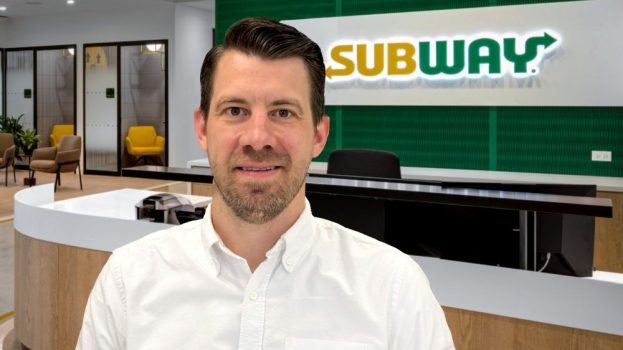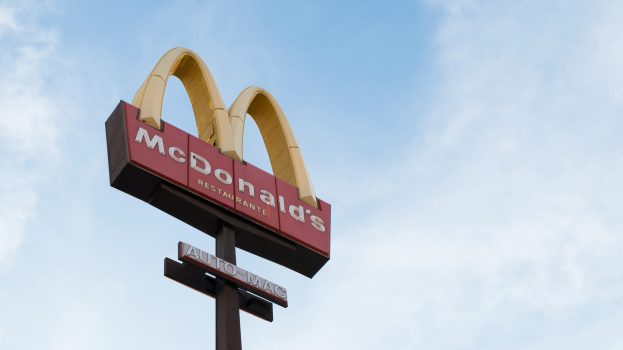By Will Novosedlik
For most established brands, sustainability was not considered a value driver until the climate crisis came along. But for footwear company Allbirds, it gave birth to the brand.
Upon the news of the San Francisco brand’s retail expansion into Canada, with its first Toronto and Vancouver stores set to open this summer, strategy sat down with co-founder Joey Zwillinger to talk about the footwear unicorn. Since launching in 2016, it has raised over $200 million and is valued at over $1.5 billion.
Zwillinger, a biotech engineer, decided early on to pursue a career that would combine business and environmentalism. While working at a company called Solar Biotech, he developed microalgae-based processes that could be used to create much more environmentally friendly alternatives to petroleum by-products.
Some of the companies he pitched included makers of athletic footwear, which are, of course, mostly made of petroleum by-products. While people were excited at first by Solar’s innovative biotech, in the end they were just looking for a cheaper way to keep doing what they were doing with fossil fuel-based polymers.
“When my partner Tim Brown and I joined forces, we both agreed that the industry was devoid of environmental leadership, and if we could bring new materials to market, then we would do something really special from a leadership perspective. So we said, ‘Let’s align our business model with our purpose.'”
The original prototypes of their very first product were developed by Brown, a former professional soccer player. While playing for New Zealand’s national team, he hated the way athletic shoe brands were, in his words, “over-designed, over-branded and over-hyped,” so he vowed to create something better.
The first shoe was made of Merino wool, a renewable resource. “While very comfortable, it could also get pretty warm,” says Zwillinger. “So we looked into something that could be high performance but much cooler. We developed a eucalyptus-based material for the upper. For the midsole we worked with a partner in Brazil to develop ‘SwiftFoam’ from the waste streams of sugar cane processing.” The result was a shoe that launched in 2018, and which claimed to have a 30-40% smaller carbon footprint than its competitors, on average.
Given Brown’s distaste for heroic branding, the company’s shoes are very subtly labeled with the brand name and the only other information on the product is a label, which works like the nutritional panel on a food or beverage product – only in Allbirds’ case it’s the product’s carbon footprint. It’s a manifestation of Brown’s philosophy that it’s better to whisper than to scream. You could almost call it “anti-branding.”
The minimalism of both the product design and the branding is a reflection of what Brown points to as Allbirds’ three core value propositions: comfort, simplicity and sustainability. Although the customers come for the sustainability, they stay for the comfort. The simplicity is a bonus.
Allbirds’ marketing strategy has also been built around the discipline of constantly listening to its customers. The brand says it relies on a mix of NPS surveys, social conversations, customer meet-ups, in-person sessions, as well as customer experience and retail reports. It is as focused on customer development as it is on product development – in fact, they are intertwined in a constant iterative loop.
Part of this approach is a program called the All Good Collective, which is the brand’s community engagement model. Ambassadors – not employees but folks who share a passion for community – are placed inside each store and encouraged to use the stores as hubs to bring people together. That might be through a run club, or some artistic, social or environmental endeavour. There are close to 200 All Good ambassadors across the retail network of about 40 stores.
Over the years, Allbirds has enjoyed some enviable earned media, most famously from TIME magazine within a week of its brand launch, when it called Allbirds’ first product “the most comfortable shoe in the world.” It was helped in a big way when the shoe became the de facto footwear of Silicon Valley titans like Google’s Larry Page, and then was seen on the feet of people like Ryan Gosling, Matthew McConaughey and Barack Obama.
Before deciding to open stores in Canada this year, the brand ran a pop-up store on Toronto’s Queen Street West back in 2018. “It was quite successful. We learned that the Canadian consumer gets the material story quite well,” says Zwillinger. “The idea of taking a naturally derived material and putting that into a product like a shoe is something that is understood here, particularly with Merino wool, this being a colder climate than in some other places.
“In Toronto, specifically, we were able to stimulate this experience where people could discover the product in a physical environment and then get their second purchase, or a later purchase, on our digital platform. That connection of our physical and digital experience was exceptional, leading us to conclude that Canada is ready for Allbirds.”
























